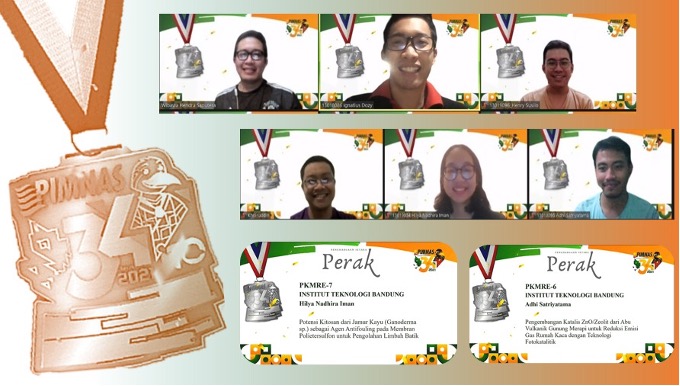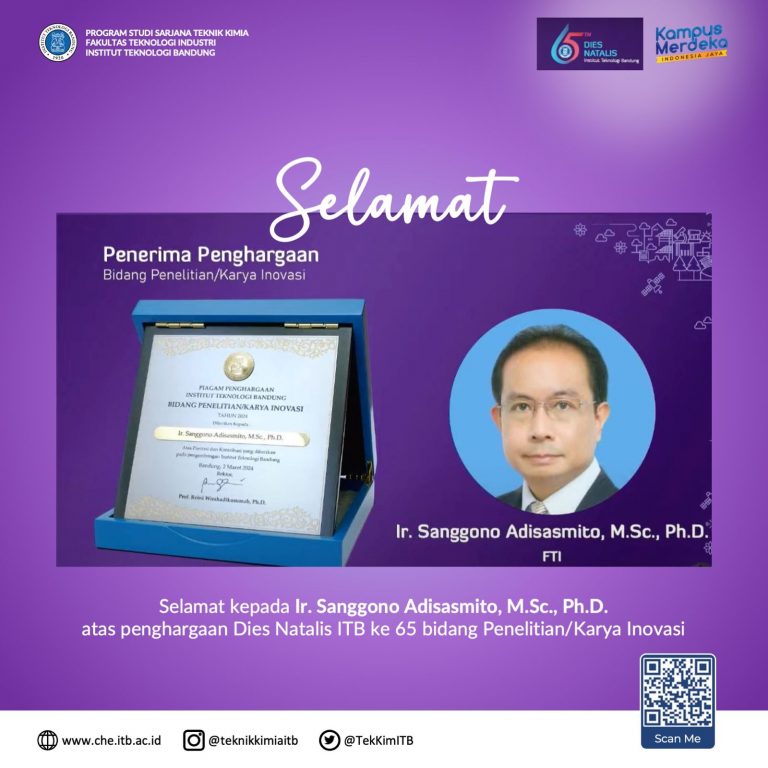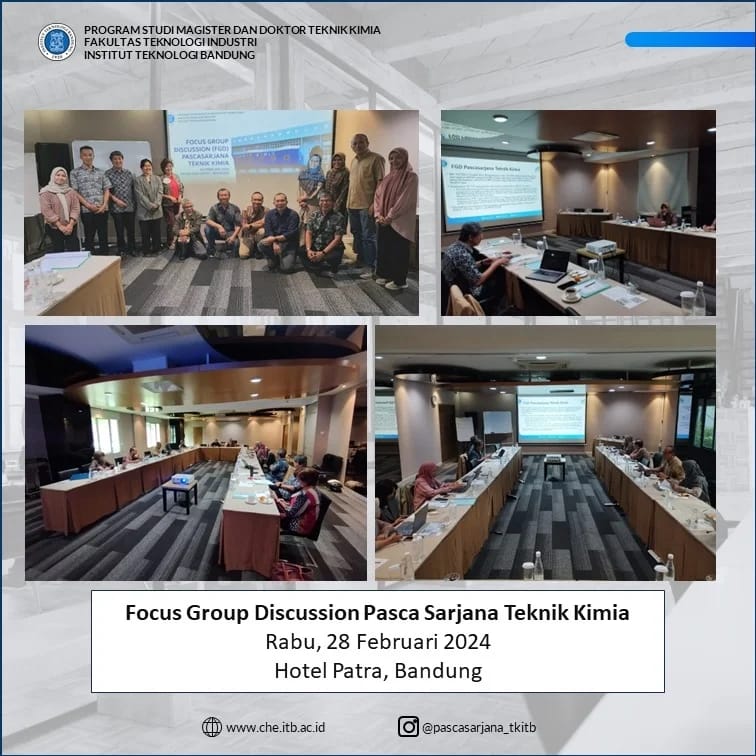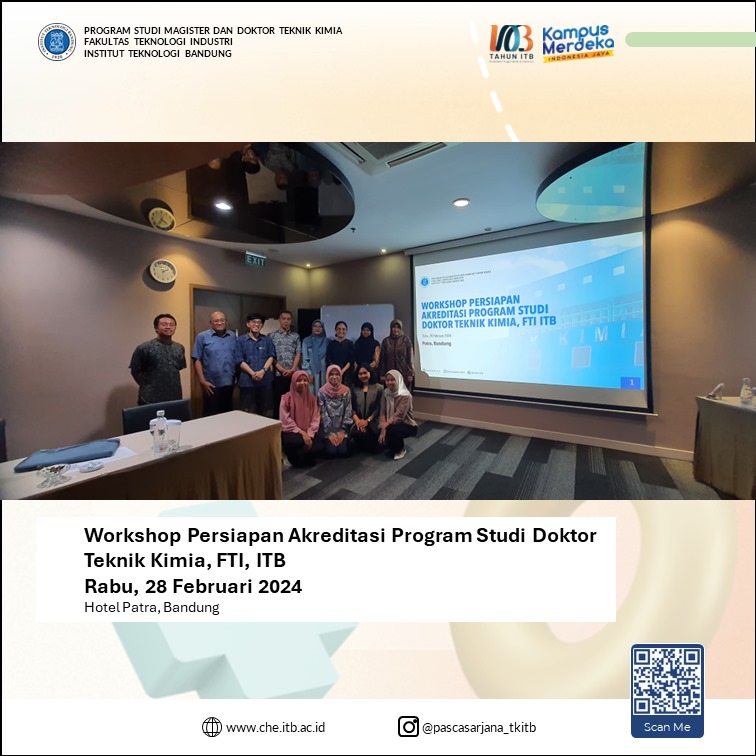
Continuing the tradition of winning at PIMNAS XXXIII after fasting for a long time, the Department of Chemical Engineering ITB contingent again won medals at the Pekan Ilmiah Mahasiswa Nasional (PIMNAS) XXXIV organized by Pusat Prestasi Nasional (Puspresnas), Ministry of Education, Culture, Research, and Technology. Unmitigated, the team consisting of a combination of 2018 and 2019 students managed to bring home two silver medals at once from two different titles. This brilliant achievement is also a new record for the ITB contingent. The first team was chaired by Adhi Satriyatama (13018095) and consisted of Ignatius Dozy Mahatmanto Budi (13018086), Hilya Nadhira Iman (13019054), and Henry Susilo (13019096) who were supervised directly by Wibawa Hendra Saputera, S.Si., M.Sc. , M.Sc., Ph.D., lecturer from KK Energy and Chemical Engineering Processing Systems. Meanwhile, the second team was chaired by Hilya Nadhira Iman and there was only a change in the position of the other members who were guided by Dr. Khoiruddin, S.T., M.T., lecturer from the KK of Chemical Engineering Process Design and Development.
At this PIMNAS XXXIV, the first title raised was Development of ZnO/Zeolite Catalyst from Volcanic Ash of Mount Merapi for Reduction of Greenhouse Gas Emissions with Photocatalytic Technology. This problem was raised considering that the concentration of carbon dioxide in the world continues to increase, so it is necessary to make efforts to convert carbon dioxide into chemical compounds that are more useful and have economic value. In addition, the volcanic ash of Mount Merapi which is currently not optimally processed also contains silica and alumina which have the potential to be developed as zeolite materials to support ZnO photocatalysts. The results of the photocatalyst technology innovation from this group showed excellent results for the products of methanol and formic acid, two important chemical compounds in everyday life.
The second title raised was the Potential of Chitosan from Wood Fungus (Ganoderma sp.) as Antifouling Agent on Polyethersulfone Membranes for Batik Waste Treatment. Batik production still produces a lot of liquid waste with some heavy metals which are very dangerous for health and the environment. One of the membrane materials commonly used for wastewater treatment is polyethersulfone. However, the hydrophilicity of this material is low so it is susceptible to fouling. This team chose chitosan taken from the fungus Ganoderma sp. as an antifouling agent and has been proven to improve membrane performance against batik waste treatment.
The team had to go through a long series of processes from the time the proposal was submitted. From nearly 68,000 proposals submitted by thousands of universities throughout the country, this team was successfully selected to obtain research funding along with 5,432 other teams. The implementation of research activities was hampered by a significant increase in Covid-19 cases in last July-August which led to the closure of campus access. This obstacle was successfully overcome tactically up to the PKP2 (Assessment of the Progress of Implementation of the PKM) agenda, a kind of monitoring and evaluation by the jury. Finally, the representative from Chemical Engineering ITB managed to enter PIMNAS with 735 teams from 108 other universities. The journey is not over yet to PIMNAS only. This team must produce posters, scientific articles for inclusion in journals, and further studies to enrich understanding of the innovations brought about. The evaluation by the jury at PIMNAS XXXIV this time was very comprehensive, both administratively and in terms of content quality. However, these four students managed to prove that they are one of the best teams in the most prestigious annual event in the world of Indonesian students.
This year, PIMNAS XXXIV has the theme “Towards a Golden Indonesia through Collaboration for Innovation in the Frame of Local Wisdom’. Local wisdom is a nation’s wealth that must be developed in the framework of the vision of Indonesia Gold 2045. It is hoped that this good tradition can also inspire other students to be directly involved in research and innovation in order to solve problems that occur in everyday life.



